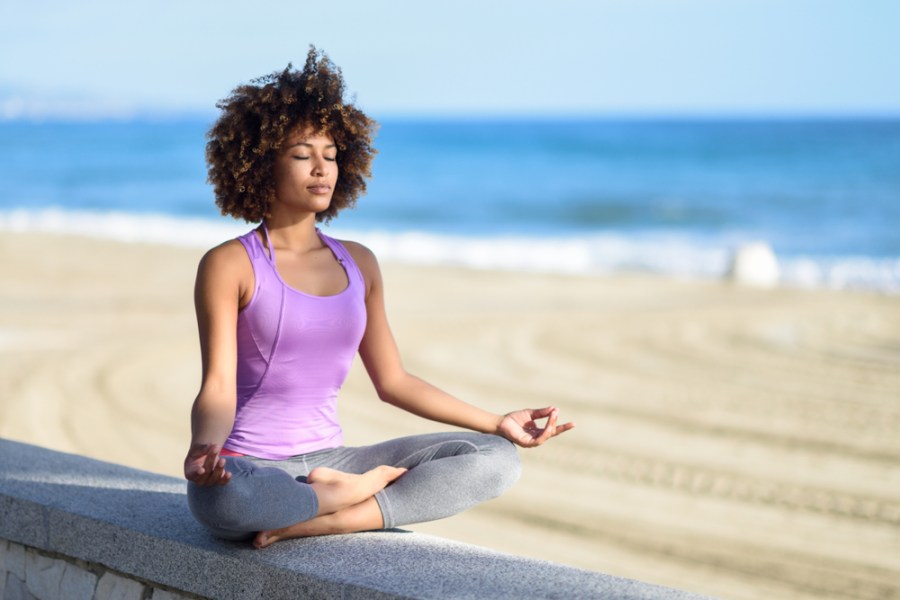Take a tip from elite athletes and use mindful meditation to get in the zone, says Eve Boggenpoel
How you prepare for a fitness challenge doesn’t just involve physical training but mental training too, especially when it comes to endurance events. While meeting your goals may mean building muscle or increasing your VO2 max, you’ll also need to set appropriate goals, maintain motivation and potentially manage anxiety, pain and injury. So, what’s the best way to build your mental muscle?
One method gaining popularity with elite-level athletes is mindfulness meditation. Indeed, research published in the journal Neural Plasticity found athletes who completed two 30-minute mindfulness sessions over five weeks showed greater endurance, a longer period before exhaustion and better cognitive functions (such as reaction time) compared to a control group.
‘Mindfulness is awareness that arises through paying attention, on purpose, in the present moment, non-judgementally,’ says Jon Kabat-Zinn, father of modern mindfulness. It can be developed with breathing practices, body scans or simply focusing your attention on the sensations you experience in different parts of your body as you work out – for example, the feeling of your feet on the ground as you run.
Seeing is believing
You can also tap into your powers of imagination to increase your sporting stamina. ‘Visualisation boosts confidence, determination and endurance,’ explains Eve Lewis, director of meditation at Headspace. ‘During the exercise, your amygdala, a tiny structure in your brain, doesn’t distinguish between something “seen” in a visualisation and something happening in real time. Your body and mind are a whole, and training your mind through this technique will have strong effects on what your body can achieve.’
To give it a go, Lewis suggests trying this visualisation: Firstly, centre yourself with some slow, deep breathing then, when you are ready, think of a time when your perseverance paid off: perhaps reaching a new PB, lifting a goal weight or crossing the finish line on your first marathon. ‘Don’t overthink it,’ explains Lewis. ‘Remain relaxed and focus less on the clarity of the image and more on the feeling. Stay in the moment, maintain awareness and feel the increased sense of readiness in both your body and mind, helping you to be present, aware and ready to perform.’
Tune in to your training
You can use visualisation at any time and repeat the practice as often as is helpful. ‘Meditating for five or 10 minutes a day can help you build it into a skill you can tap into when needed, and train your body to endure more when exercising,’ says Lewis. Just remember to include all your senses, so, as well as seeing yourself cross that finish line, tune into how your body feels, the emotions you’re experiencing, the sound of your partner cheering you on and the amazing taste of that recovery shake. The more immersive your experience, the more familiar success will feel in your mind.







